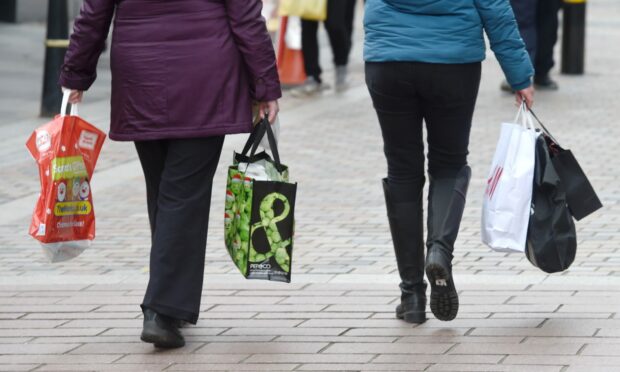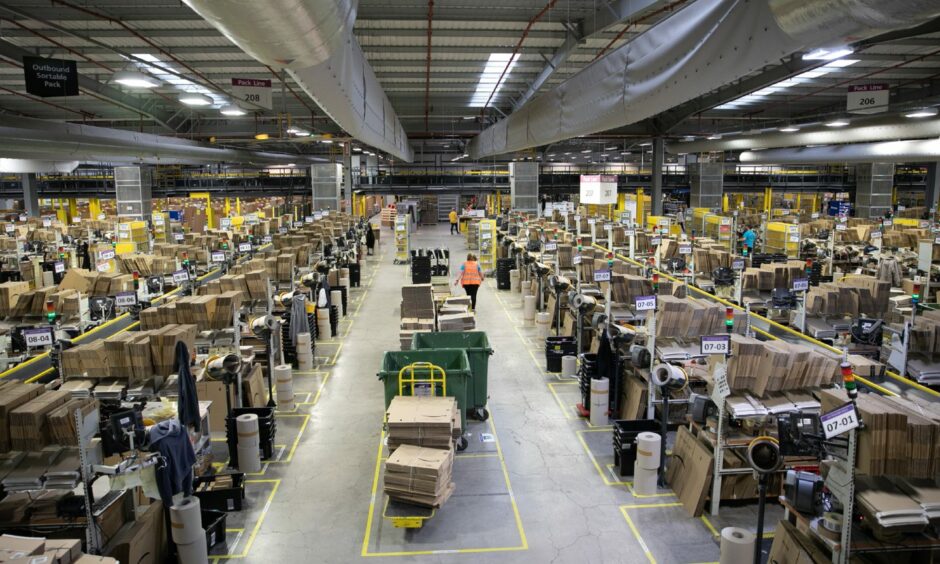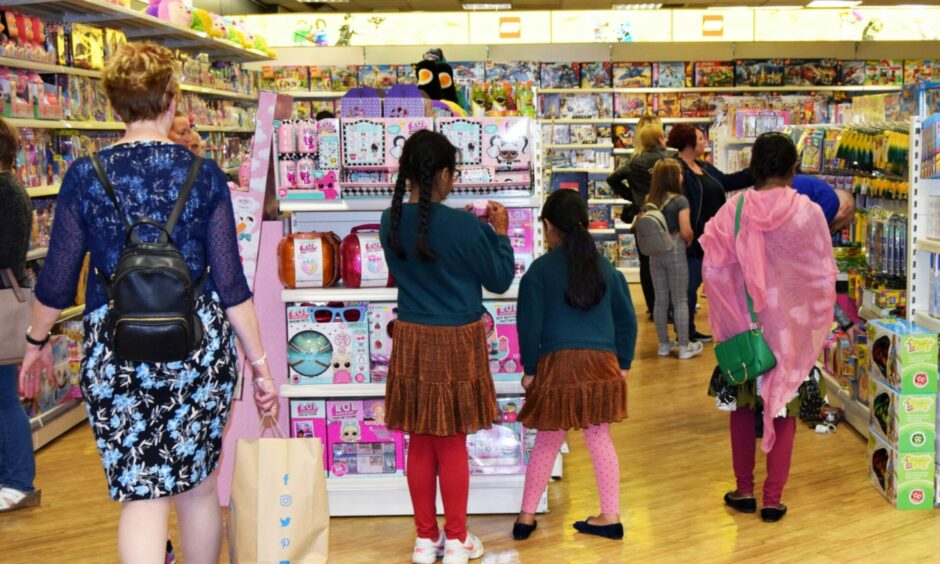Consumers are being encouraged to begin shopping for Christmas gifts before Halloween to avoid missing out due to shortages – but is the pressure to buy early necessary?
Retailers have ordered Christmas stock early to avoid being left disappointed by the global shipping delays, freight jams at ports and fuel shortages caused by panic buying.
However, once the stock is gone it is thought that stores will struggle to reorder in time for Christmas.
Speaking to the Sunday Express Andrew Goodacre, chief executive of the British Independent Retailers Association, explained that buying Christmas presents this early is “how it is going to have to be”.
He said: “Our members are telling us that they are getting stock through, the challenge will be replenishment and if they reorder stock they might get some but it is not likely.
“It does seem strange buying for Christmas before Halloween has arrived but that is how it is going to have to be.”
Mr Goodacre is confident there will be plenty food and goods for people to enjoy this festive season, but he warned that panic buying will result in shortages.
Last week, online shopping giant Amazon warned of a “global supply crunch”.
According to company planning sheets, the retail giant’s UK arm is expected to ask people to do their shopping as early as four weeks ahead of Christmas due to ongoing supply chain disruption.
The company will try to move the majority of orders towards the end of November, with “shop early” reminders on its site and app, ahead of an e-mail campaign.
‘Fear of missing out’ driving Christmas rush
Andrew Martin, a tourism and retail expert who was a senior lecturer at RGU, believes that people are panic buying because of a “fear of missing out”.
He said: “We actually missed out on a family Christmas due to Covid. It’s quite an important time of year for everyone, however, panic is sadly driven by the media and people can’t help themselves.
“There is a fear of missing out, a deep psychological fear and nothing is more important than the perceived value of a family Christmas.”
He added: “People want to make sure they look after their children or their family and friends, hence the panic-buy, it’s the fear of something being taken away from them.”
Toytown managing director Alan Simpson said shoppers who wait until December could struggle to find what they want.
Mr Simpson, who owns 10 stores across Scotland – including one in Aberdeen’s Trinity Centre – explained that delays in shipping stock out of China alongside a shortage in HGV drivers had created the “perfect storm”.
Speaking on Good Morning Scotland, he warned ahead of the Christmas rush that stock will be limited, but toys will still be on sale.
“My estimation is that there could be several hundred containers that won’t arrive in time for Christmas.” Mr Simpson said.
“Our shelves are full at the minute but we’re working from existing stockholding, that can’t last forever.”
Early Christmas shopping an ‘unnecessary pressure’
Meanwhile, Mr Martin warned that buying Christmas presents too early is not good for retail and not beneficial for the consumer either and describes it as an “unnecessary pressure”.
He believes that although generating sales is beneficial, panic buying in October instead of December means that retailers are missing out on sales later on.
Additionally, the pressure mounts around the last week of October for both retailers and consumers as Halloween is shortly followed by Guy Fawkes Night which are both two busy shopping events ahead of the Christmas season.
Mr Martin finished: “I have a real concern about panic buying.
“Last year it was toilet roll, more recently petrol – in neither of these situations was there a need for panic buying, it was just the panic buying itself that precipitated the problem.”


